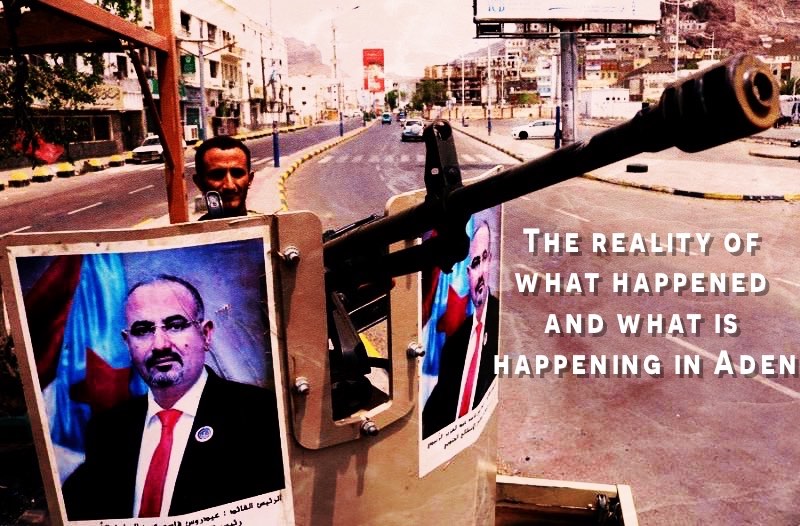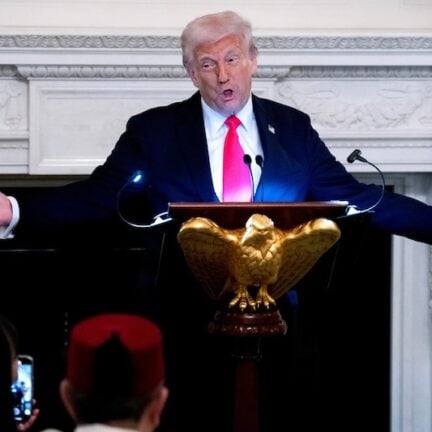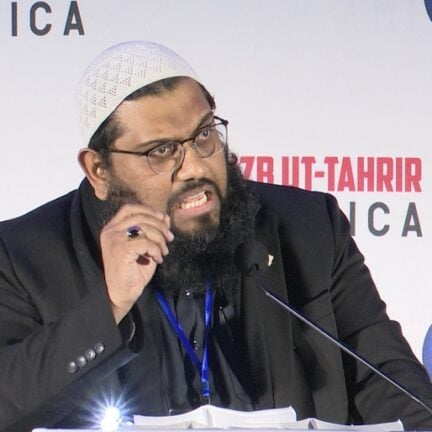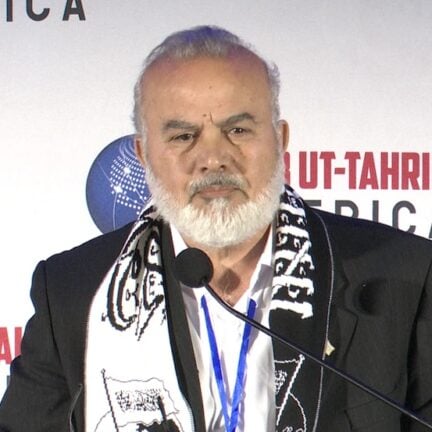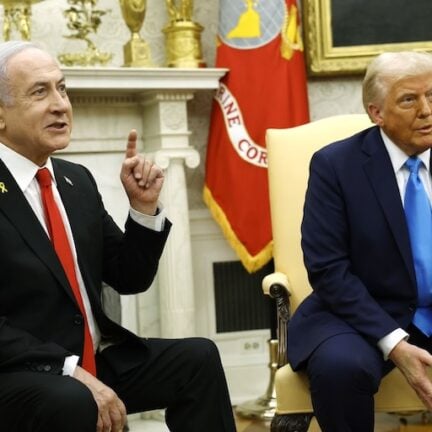Question: What happened and what is happening in Aden? How can there be fighting between Al-Zubaidi’s Council and the Hadi government, although Al-Zubaidi was the governor of Aden appointed by Hadi, and after he was dismissed, he remained in Aden without Hadi’s government taking any action against him, but rather he was gathering his forces under the government’s eyes and ears?! And what is expected now that the Transitional Council has taken over Aden? Thank you and respectfully yours.
Answer:
For a clear answer it is necessary to review the following:
First, since the beginning of the Operation Decisive Storm, Britain was aware that Saudi Arabia’s intervention under the name of the Operation Decisive Storm, with air operations, was not really with the aim to eliminate the Houthis. Otherwise, they would have deployed ground forces. But it was to show the Houthis as defenders of Yemen in front of the warplanes, thus appearing to be oppressed and, at the same time, as heroes to get popular acceptance, and gain public opinion, and then to involve them in the government with a fuller share in the rule of Yemen. After they were a tribe in the Saada region, they now have become rivals of the government in all of Yemen! Because Britain knew this, it involved the UAE in Saudi Arabia’s Storm coalition to make room for the UAE to confront the Houthis for real and not in appearance. Britain therefore began to push the UAE to achieve two things:
The first objective: is to find an alternative to Hadi, as he is almost a prisoner in Saudi Arabia and is helpless. So Britain wanted to find an alternative to Hadi in Aden so that he would be subordinate to it and not captive in Saudi Arabia. For this reason, the UAE found the alternative in successive steps. There was the Southern Movement (Al-Hirak) which officially declared itself in the south of Yemen in 2007 headed by opposition activist Hassan Baoum associated with America and backed by Iran. Britain was afraid of his movements, but this fear reached its peak after the death of Salih, where the influence of Britain diminished after the success of the Houthis to extend their influence in the north. Therefore it began to seriously consider to have a force in the south, as a pressure card that would enable it to exist in the rule of Yemen, if it could not, at least to be part of the rule in the south. Therefore, it began to think seriously about concentrating its influence in the south, especially since it did not rely entirely on Hadi on the grounds that Saudi Arabia is controlling him. Thus, Britain was interested in this matter through the UAE to penetrate the original Southern Movement or marginalize it by creating a new movement to lead in the arena, and then it focused through the UAE and its followers to find a movement in the south parallel to the Baoum wing to outbid it in the cause of the south; they found what they were looking for in Aidarous Al-Zubaidi. He is one of the known leaders in the Southern Movement, and known for his proximity to the British camp. He was appointed by President Hadi on 7/12/2015 as the governor of Aden, months after the launch of the Saudi Decisive Storm (in March 2015).
This was a major indication of the British agents’ trust in him. Aidarous Al-Zubaidi was surrounded by a great aura in Aden. He was a successful governor of the city who restored electricity there, expelled armed gangs and fought the Houthis. He attracted attention as an important political personality in the south who competed with the historic leadership of Hassan Baoum in the Southern Movement. Militarily, Aidarous Al-Zubaidi relies on Hani bin Brek, the founder of the Southern Belt forces, which is widely described as the UAE’s man in the south [and he founded the so-called “security belt” forces, the UAE-backed militia in southern Yemen. … (Sasa Post, 2/11/2017)]. And so Al-Zubaidi and Brek had a significant weight in the south, but because they were in Hadi’s government and their allegiance is exposed to be for the English, and they are not popular in the call for the Southern Movement. The first step was to remove them from Hadi’s government in a way that shows them in a tense dispute, specially Al-Zubaidi, with the Hadi camp, so that the southerners gather around them/him to form the new Southern Movement, and this is what took place. On April 27/4/2017, the Yemeni president issued a decree dismissing Aidarous Al-Zubaidi, the governor of Aden, and the state minister, Hani bin Brek, with the latter referred for investigation. Thousands of Yemenis took part in a demonstration in the southern city of Aden condemning Hadi’s decisions. Al-Zubaidi then announced his presidency of the body of the Southern Transitional Council in the city of Aden on 11/5/2017, and that Hani bin Brek will be Vice-Chairman of the Council with 26 members. Thus, Britain formed, through the UAE, an alternative to the government of Hadi, i.e. the Transitional Council to use when its time comes. So he remained in Aden and has a significant force protected by the UAE army.
The Second Objective: Freeing Hodeidah from the Houthis’ Grip
A- The UAE had entered Yemen by land and air because air combat alone could not conclude the battle on the ground except by ground intervention. So it pushed its forces and aides in Hodeidah. It nearly took it over if it wasn’t for America’s obstruction with the pretext of humanitarian aid. As for why there is an interest in Hodeidah, it is because Britain knows that the strength to the Houthis is the Iranian support. After the closure of Sana’a airport and the control of the southern ports, Hodeidah’s new port became the only artery for Iran to send its support to the Houthis. Therefore, the UAE went to Hodeidah to control it, and the Houthis faced great dangers of the imminent seizure of Hodeidah and its port by the UAE-backed forces, when it was approaching its outskirts. Hence, the Hodeidah battles and the prospects of the UAE and its militias taking control of its new port became the greatest threat to Yemen’s Houthi rule. Therefore the Houthi mobilized all his forces to prevent this from taking place, and America recruited its officials to lament on the humanitarian situation in Yemen, and that the port of Hodeidah is an artery to prevent famine in Yemen. The UAE and its local allies were awaiting international opportunities to launch more attacks and complete the control of Hodeidah after they reached its outskirts to control the Hodeidah after they reached the outskirts. America became more concerned about stopping the UAE attack on Hodeidah, because if the Houthis lose grip of Hodeidah, this makes America in trouble!
B- Then was the brutal assassination of Saudi journalist Khashoggi that took place in Istanbul. It has created a charged international atmosphere towards Saudi Arabia and Trump as well for his defense of Saudi Arabia. America wanted to divert the attention of the international situation to an issue that covers up somewhat the subject of Khashoggi and lifts the embarrassment from Saudi Arabia and the Trump administration, so they chose Yemen. Then the US Senate voted in favour of ending US military support for the war in Yemen [and in a historic move senators voted 56 to 41 to end military support for the Saudi-led campaign in Yemen … (Reuters 14/12/2018)]. Based on this and in order to remove the international embarrassment off Saudi Arabia and cover the issue of the Saudi journalist, America called for a ceasefire in Yemen within 30 days. [Defense Secretary James Mattis called on the parties to the Yemeni conflict to ceasefire within 30 days, and to enter into serious negotiations to end the war in the country … He stressed that “the warring parties in Yemen must move forward towards peace efforts,” and continued: “We need to do this during the next 30 days, and I think that Saudi Arabia and the United Arab Emirates are ready to move on the issue” (Gulf Online 31/10/2018)].
C- This was followed by Sweden’s agreement to resolve the issue of Yemen, and Britain was aware that the agreement is administered by the United States for the benefit of the Houthis. The negotiators are the Houthis and Hadi who was overpowered by Saudi Arabia. It has been reported that the government’s delegation was of the opinion not to sign the agreement because it does not state the exit of the Houthis from Hodeidah. But Hadi agreed under pressure from Saudi Arabia! [Al-Jazeera sources said that the government’s delegation presented a paper to Hadi, “who resides in Riyadh”, that recommends not signing the agreement because it does not explicitly state the exit of the Houthis from the city of Hodeidah and its port, but the Yemeni president was directed to sign it after strong pressure from Saudi Arabia during the past hours, according to sources … (Aljazeera.net 13/12/2018)]. Of-course America welcomed the agreement openly, [US Secretary of State, Pompeo, welcomed the agreement, saying that “peace is possible in Yemen” … (BBC 14/12/2018)]. America was interested in implementing the agreement without the Houthis withdrawing from Hodeidah; it thought this was possible because the negotiating parties are under its control: the Houthis and the overpowered Hadi by Saudi Arabia.
Second, Britain found that time has come for Hadi’s alternative to carry out its role. If America succeeded in stabilizing the Houthis in the north, the English alternative to Hadi would be fixed in the south, making America and Saudi Arabia unable to find a solution with the Houthis under an English agent dominated by Saudi Arabia, linked to America, but will find in front of it a strong English movement in the south that works for Britain without the domination of Saudi Arabia. Thus Britain will be part of any solution to the issue of Yemen. Thus, the alternative was mobilized, i.e. Al-Zubaidi Council, to start the events of Aden:
1- The recent events in Aden have been strikingly accelerating! The tension started between the Southern Transitional Council and the legitimate government forces in Aden, and then the clashes took place between the “security belt” and the government forces; all started on 7/8/2019, and Saturday evening 10/8/2019, i.e. only after four days, [the Southern Transitional Council in Yemen announced on Saturday evening its control of the presidential Ma’ashiq palace in Aden after four days of clashes … (France 24 on 10/8/2019)]. The other camps and departments in Aden also fell in their control!
2- What helped to resolve these events quickly “within four days” is that the government of Hadi and its organs and the President and Vice-President are loyal to Britain; they facilitated the Council’s assigned role by Britain! Thus, the Council was able to resolve the matter quickly, and some indicators show this:
A- [An official in the security belt forces said, “We were handed over the palace of Ma’ahsiq from the presidential forces without confrontations” (France 24 on 10/8/2019)].
B- [Yemeni Minister of Interior Ahmed al-Maisari: The silence of the Yemeni presidency on what happened in Aden was suspicious and not successful. (Aljazeera, 11/08/2019)].
C- […The commander of the special forces in the Yemeni government, Major General Fadl Baesh, announced on Saturday, 10/8/2019, his defection and joining the forces of the Transitional Council. A video clip, broadcast by platforms belonging to the Transitional Council showed Fadl Baesh announcing his defection from the government legitimate forces, and his and his soldiers’ joining of the forces of the Southern Transitional Council led by President Major General Aidarous Al-Zubaidi”… (Middle East Online on 10/8/2019)].
D- This is in addition to the large role of the UAE, which was deceiving like its master. The UAE is the main supporter of Al-Zubaidi! However, after every action it takes against Saudi Arabia’s plans, it immediately declares that it is a member of the Saudi-led coalition! And that they are working together to stabilize Yemen!
Third: It seems that Saudi Arabia did not expect this speed in the resolution, especially in the period of pilgrimage. The Transitional Council seized Aden on Saturday evening 10/8/2019. And then Saudi Arabia began to realise the matter:
A- […The Coalition of Support to the Legitimacy in Yemen called late yesterday on all military components and formations in Aden, including the Southern Transitional Council and the security belt forces, which took control of the situation there, to immediately return to their positions; and to withdraw from all areas it seized during the past days, and not to tamper with public and private properties. The coalition also called for an immediate ceasefire in the Yemeni interim capital, Aden, as of 1:00 am last night, stressing that its forces “would use military force against anyone who violates that … and minutes after the deadline, the Transitional Council declared its agreement to a cease-fire, and that it appreciates Riyadh’s call for dialogue … (Al-Sharq Al-Awsat on 11/8/2019)]. End … However, the [Deputy Speaker Hani Ali Brek said on Twitter that the Council remains committed to the coalition, but he stressed that “there will be no negotiations under threats”. An official source in the Arab Alliance described the Transitional Council’s statement on the ceasefire as good but insufficient, stressing the need to withdraw from the positions it controlled by armed action. The source said that the meeting between the Yemeni parties in Saudi Arabia will be “immediately after the Transitional Council’s withdrawal and the return of its forces to their positions” … (Independent Arabic on 11/8/2019)]. End
B- To give credibility of the coalition announcement, it targeted one of the sites: [one of the areas posing a threat by separatists against the legitimate Yemeni government in the interim capital of Aden was targeted. The coalition said that it is the first operation it carries out in this context and it will be followed by other operations in case of non-compliance with the ceasefire statement in Aden, which threatens to use force against the violators… (Al-Arabiya 11/8/2019)].
C- [An official source in the Arab Coalition stated that (the Southern Transitional Council forces started withdrawing from some areas they had taken control of in Aden after the coalition forces targeted one of the Council’s positions. This targeting came after warnings issued by the coalition’s
leadership in a statement on Saturday evening, 10/8/2019, it demanded an immediate ceasefire in Aden … (RT 11/8/2019)].
First: is that Saudi Arabia, having invited the two parties to dialogue on its soil, will try its best to dominate Al-Zubaidi and his council as it did with Hadi and his government, and although this is not easily attainable because Britain is behind the formation of this Council, because of Hadi falling under Saudi’s domination, therefore, it will not allow it to fall into the pit where Hadi has fallen again. It is likely that Saudi will use the carrot and stick policy with Al-Zubaidi. It will tempt him to participate in Hadi’s government with more powers for him in it, and Hadi will have fewer powers, but will remain as president to save face. And Saudi will threaten Al-Zubaid, if he rejects this, with military attacks. It is not excluded that King Salman’s meeting with the Crown Prince of Abu Dhabi on 12/8/2019 is for this purpose in order to restore things as they were, as Saudi Arabia is aware that the UAE is behind the establishment of the Transitional Council headed by Al-Zubaidi.
Second, if the Transitional Council refuses, and Saudi Arabia’s efforts fail, then Britain intervenes directly and talks with the US and promises to push the Transitional Council to negotiate with the Houthis to find a solution in which the Houthis have a significant share of power. It may not be a coincidence that Muhammad Al-Bakhaiti, member of the political office of the Houthis, publishes this on his Facebook page on 11/8/2019 i.e. immediately after the control of the Transitional Council of Aden as well as coinciding with the Saudi call for dialogue: (We call on all political components, especially the main components represented by Ansar Allah, the Congress Party, the Reform Party and the Transitional Council to sit at the dialogue table to end the war and agree on the formation of a new transitional authority representing everyone and then agree on the reconciliation project)
Thus, the atmosphere for such a solution seems to be ready, since America wants to end the Yemeni issue as made evident by its statements prior to the negotiations in Sweden, and Saudi Arabia wants to get out of the quagmire of Yemen. And Britain has already founded a group that will be under its control without submitting to Saudi Arabia. It also agrees to the negotiations and does not derail its path as before when Hadi was overpowered. If America and Britain agreed on a joint solution, the followers will implement it: the Houthis, the Transitional Council and Saudi Arabia. But the obstacle to any joint solution between the capitalists will be their concepts of exploitation and benefit that run in their blood. The priority for both America and Britain before the joint solution is that each imposes the solution that achieves its interests, and this is what prolongs their discussions, while the Houthi, Saudi, Hadi and the Council are waiting!
Fifth: What hurts is that the people of Yemen are able to solve their issue by themselves if they are sincere to Allah (swt) and truthful with the Messenger of Allah (saw). How can they allow our enemies to take control of solving our issues? The colonial Kuffar discuss and study the solution of shedding Muslim blood, and then they will sit around the blood to choose the solution suited to their interests, and the rulers and their aides in Muslim countries are blinded by their arrogance, as if what is happening is taking place in a remote land and not in the Muslim lands! Surrendering our issues to the colonialists Kuffar to solve it and to depend on them is a major crime that shames its perpetrators in this world and they will suffer its punishment in the Hereafter.
[سَيُصِيبُ الَّذِينَ أَجْرَمُوا صَغَارٌ عِنْدَ اللَّهِ وَعَذَابٌ شَدِيدٌ بِمَا كَانُوا يَمْكُرُونَ]“There will afflict those who committed crimes debasement before Allah and severe punishment for what they used to conspire” [Al-An’am: 124]

